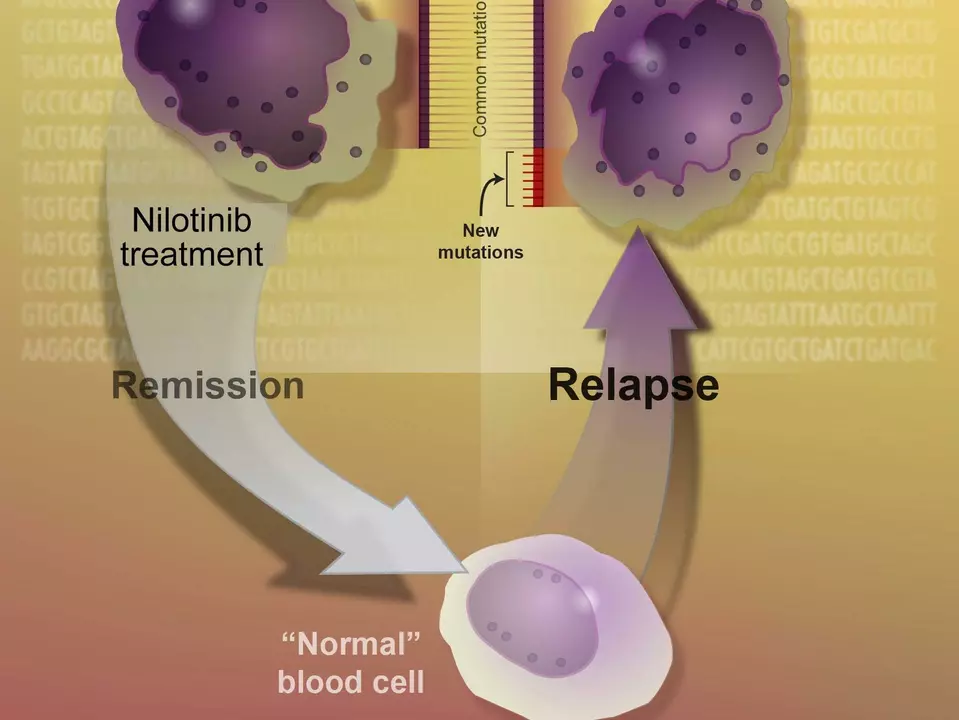Oncology Basics: What You Need to Know About Cancer Care
Welcome to the oncology hub. If you or a loved one is dealing with cancer, you probably have a lot of questions. This page gives plain‑language answers about common cancers, how they’re treated, and where to get help.
Common Cancer Types You Might Hear About
Most people first hear about breast, lung, prostate, colorectal and blood cancers like leukemia or lymphoma. Each one grows in a different part of the body and can behave uniquely, but they all share a few red flags: unexplained weight loss, persistent pain, or changes that don’t go away.
Take lymphoma, for example. It’s a cancer of the immune system that can cause swollen nodes, night sweats, or fatigue. One of our articles, “Lymphoma and Spirituality,” shows how faith or personal belief can give comfort during treatment. Reading real stories helps you see that coping isn’t just medical—mental peace matters too.
Treatment Options Overview
When doctors talk about treatment, they usually mention surgery, chemotherapy, radiotherapy, targeted therapy and immunotherapy. Surgery removes the tumor when it’s accessible. Chemo uses drugs to kill fast‑growing cells, but it also hits healthy cells, which is why you might feel sick.
Targeted medicines work like a smart key. Nilotinib, for instance, blocks specific proteins that let chronic myeloid leukemia (CML) grow. It’s often easier on the body than older drugs and can keep CML in check for years.
Radiotherapy uses high‑energy beams to shrink tumors or stop them from spreading. Newer techniques shape the beam to match the tumor, sparing surrounding tissue. Immunotherapy boosts your own immune system so it recognizes and attacks cancer cells—think of it as training your body’s soldiers.
Choosing a plan isn’t one‑size‑fits‑all. Your doctor looks at the cancer stage, overall health, and personal preferences. Ask about side‑effect management; anti‑nausea meds, gentle exercise, or simple diet tweaks can make chemo feel less brutal.
Beyond medicine, support services are key. Cancer centers often have counselors, nutritionists, and peer groups. Connecting with others who’ve walked the same path reduces isolation and gives practical tips you won’t find in a textbook.
Remember, staying informed empowers you to ask the right questions. Keep notes on symptoms, medication schedules, and any side effects. Bring these notes to each appointment so your care team can adjust quickly.
In short, oncology blends science with personal care. Knowing the basics—what cancer type you’re facing, which treatments are available, and where to find emotional help—puts you in a stronger position to fight back. Explore the articles below for deeper dives into specific cancers or therapies, and feel free to reach out if something isn’t clear.

Pancreatitis and Pancreatic Cancer: How Inflammation Fuels Cancer Risk
Explore the scientific link between pancreatitis and pancreatic cancer, covering risk, genetics, shared factors, and what patients and doctors can do.
Read More
Exemestane and Body Image: Practical Tips to Cope With Physical Changes
On exemestane and struggling with body image? Learn what changes to expect and practical ways to cope, from clothes and skincare to movement, intimacy, and support.
Read More
Lymphoma and Spirituality: Navigating Comfort and Meaning
Exploring the intersection of lymphoma and spirituality, this article discusses how spirituality can provide comfort and meaning to those facing this challenging diagnosis. It delves into practices and beliefs that may help individuals cope with the emotional and psychological challenges of lymphoma. The piece offers practical advice on incorporating spirituality into daily life and highlights the importance of a supportive community. It also touches upon personal stories to give a relatable perspective on finding peace amidst uncertainty.
Read More
The Role of Nilotinib in the Treatment of Chronic Myeloid Leukemia (CML)
As a blogger, I recently came across an interesting topic - the role of Nilotinib in the treatment of Chronic Myeloid Leukemia (CML). CML is a type of blood cancer that affects the white blood cells, and Nilotinib is a targeted therapy that has shown promising results in its treatment. What makes Nilotinib stand out is its ability to block specific proteins that cause the growth of cancer cells, helping to slow down or stop the progression of the disease. Additionally, Nilotinib has been found to be more effective and tolerable than other treatments, such as imatinib, in certain cases. It's truly fascinating to see how advances in medical research continue to provide hope and improved treatment options for those battling CML.
Read More